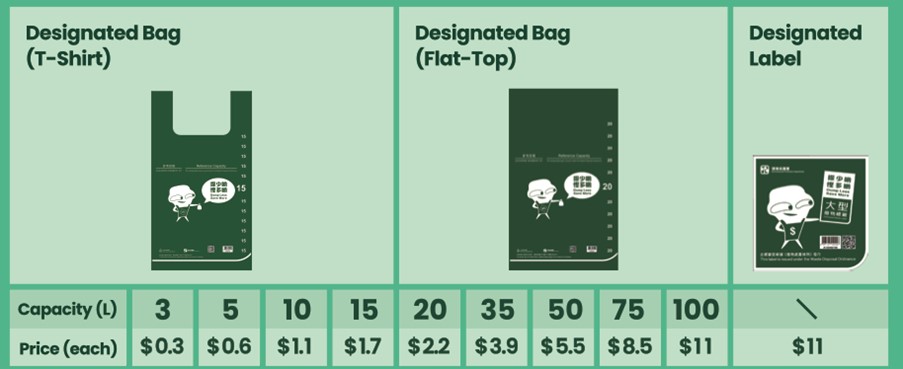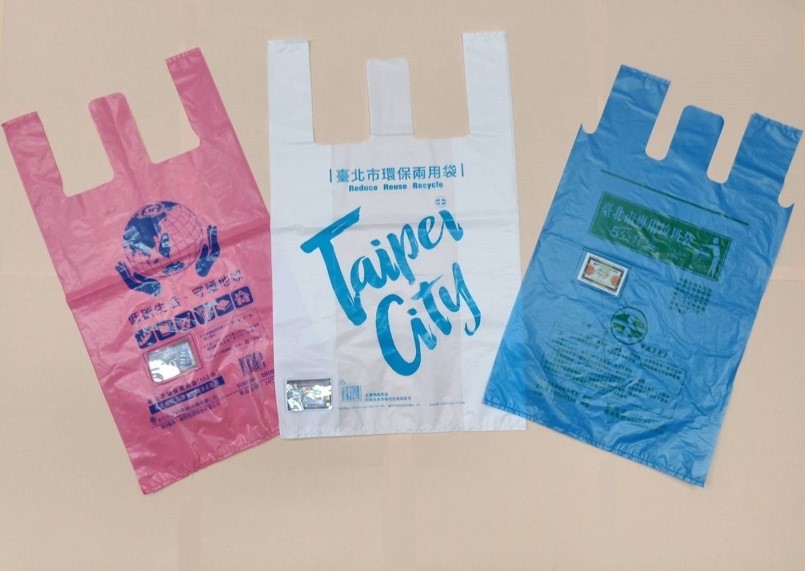



The 'pay-as-you-throw' waste tax, a new Municipal Solid Waste (MSW) charging scheme, is set to be implemented across Hong Kong this year. Once the scheme comes into full effect, Hong Kong residents must pay for the waste they generate based on its quantity. This article explores what the scheme is and the authentication possibilities supporting the recyclability efforts.
Based on the polluter-pays principle, the strategy is to encourage the public to practice waste reduction and recycling. Under the scheme, Hong Kong residents must buy designated rubbish bags to dispose of their domestic, commercial and industrial waste.
20 years after the idea was first floated, the scheme will commence on 1 August 2024. Authorities initially planned to implement the measure by the end of 2023, but it was delayed first to delayed it to 1 April 2024 and then again to 1 August after the government decided there was a need for more publicity efforts. Meanwhile, a trial run will be implemented at government offices starting 1 April.
There are two charging modes: 'charging by designated bags/designated labels' and 'charging by weight through gate-fee'. The first mode applies to most residential, commercial, and institutional premises, while the second mode applies to oversized or irregularly shaped waste from commercial and industrial premises.
The scheme will require the public to properly wrap their waste in designated bags or attach designated labels before disposing the bags at communal waste areas. This applies to all domestic/household waste and waste from commercial and industrial buildings, shops, restaurants, etc. However, construction, chemical, and clinical waste will have separate charging systems.

Starting this month, residents can purchase government-approved rubbish bags and labels from approximately 4,000 authorised retail outlets, including supermarkets, convenience stores, pharmacies, vending machines and online platforms. The designated bags will be available in nine different sizes ranging from 3 litres to 100 litres, with each litre costing HK$0.11.
The uniform cost for for oversized waste that cannot be bagged is $11 per label. The bag/labels contain authentication features, including a barcode, QR code, batch number and an anti-tampering design.
The authorities have taken steps to avoid fraudulent activities, including selling fake bags. Earlier this month, authorities warned the public to avoid buying the bags from unknown sources and also notified customs of the findings of their follow-up investigations. The department has completed the registration of trademarks to design the bags and labels to guard against counterfeit products. Any person who sells or possesses counterfeit goods could be fined up to HK$500,000 (US$64,000), and be sentenced to five years imprisonment.
Four Hong Kong companies - Chun Hing Plastic Packaging Manufactory, Enviro-Sense Green Tech, Nicole Universal, and Liveability - won the bids to supply these bags. According to media sources, each contracted supplier is expected to produce approximately 300 million bags with a contract duration of 38 months. As per the Environmental Protection Department (EPD), the estimated contract value ranges from around HK$80-182 million per contract.
According to the Hong Kong authorities, similar arrangements overseas have encouraged people to recycle, and the tax could result in a ‘cleaner, more hygienic and healthy’ city.

Countries like Taiwan, which have implemented progressive plastic reduction policies, have also used similar measures for many years. Taiwan also uses specific recycling bags with anti-counterfeiting labels, including holograms and UV features.
Elswhere, in the European region, France is the first country to carry out a pilot project using Digimarc’s digital watermarks technology to increase plastic recycling.
While sustainability, the circular economy and recyclability continue as global matters, watching these ongoing and new initiatives would be interesting.